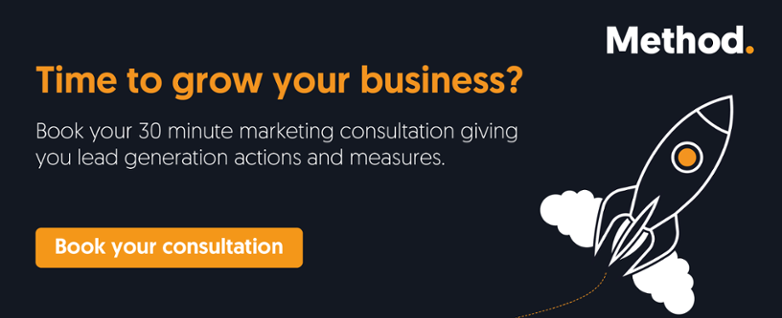Not got time to read? Listen instead with our audio version
How many times have you heard the phrase ‘growth mindset’ chucked around like it’s a lightweight inflatable?
'Growth mindset' has bounced around the self-help sphere ever since Carol Dweck’s book ‘Mindset’ back in 2006, and for good reason, too.
Highlighting the differences between different polar opposite mindsets can give us that 'lightbulb moment' we've been craving. It can explain why things haven't been working out, or things keep on failing.
Often it's easy to put setbacks down to external factors. But what if it's all about mindset?
What is a growth mindset?
At its core, Dweck’s theory is this: Some of us have fixed mindsets, and some of us have a growth mindset. We can learn and develop a growth mindset when things go well. But we can also develop a fixed mindset if we keep having bad experiences or repetitive setbacks.
A growth mindset sees progression as a mountain to climb rather than a smooth, flat path. Adopting a growth mindset can have a considerable knock-on effect for growth.
The characteristics of a growth mindset
You recognise that you're innately skilled at certain things, but it takes more than just 'being good at something' to improve.
A growth mindset believes...
- Our abilities and intelligence can be developed with effort, learning, and persistence
- Optimism is a powerful thing
- Not everything is going to go smoothly in life
- Setbacks are a possibility, but you can overcome them with resilience
- If you continue using perseverance tactics every time you encounter a setback, you can achieve phenomenal growth
In Mindset, Dweck writes...
‘The passion for stretching yourself and sticking to it, even (or especially) when it’s not going well, is the hallmark of the growth mindset.’
What are the characteristics of a fixed mindset?
If you have a fixed mindset, you believe we are tied to our abilities and strengths as they are. A fixed mindset is a pro bullet-dodger.
A fixed mindset believes...
- We are born to be good or bad at certain things, and our lives are defined by our skills/abilities
- If we face setbacks, we can't really come back from them
- The setback is a reflection on the individual as a whole
- Flaws and inabilities should be hidden, because people might perceive us as weak
- If we avoid challenges, we can't fail
- Other people's success can be a threat
If we repetitively tell ourselves 'I'm bad at maths' then naturally, we'll always be bad at maths.
And this thinking has a knock-on effect. For example:
You want to get your finance plan completed by next week. But because you're convinced that you're bad at maths, you've completely shut off your potential to calculate your finances. The task only gets done three weeks later when you ask someone else to do it.
If you have a growth mindset, so does your business
By feeding yourself a growth mindset, you're feeding your business a growth mindset too.
That means creating a company culture that lives and breathes the same growth mindset.
A growth mindset seeks to understand why something went wrong, takes responsibility and bounces back with a game plan. The more this mindset is adopted, the easier it is to be resilient in the face of setbacks. And it's this very resilience that fuels growth.
How to transfer a growth mindset across to your business
Cultivating a growth mindset across your business can do wonders for growth.
Here's how:
- Embrace setbacks
- Persist when things go wrong
- Find lessons from your competitor's success
- Change your language
- Create a growth-minded company culture
- Use criticism to your advantage
Embrace setbacks
Embracing setbacks is all about allowing room for your perseverance to shine. These moments of 'failure' are actually windows of opportunity.
Firstly, recognise and acknowledge your feelings, give yourself permission to feel annoyed or frustrated, then change your perspective and reframe the setback as an opportunity. Flip it round on it's head, every setback is actually a lesson.
Persisting when things go wrong
Persisting in the face of a setback is about envisioning 'how' you can get back from an issue. Visualise how you're going to get back from the setback.
Break down the journey into chunks that are easy and small, and congratulate yourself on the smallest of achievements (even if it's something simple, like receiving a new contact form submission).
Find lessons from competitor success
Look at others' successes as an opportunity to learn and get inspired.
Let's say your competitor gained ten times your amount of social engagement and click-throughs in the duration of a campaign, but your numbers have been stagnant for weeks. Naturally, you might feel a sense of jealousy or frustration.
Instead, take the situation as an opportunity to learn something. Instead of being bitter and dismissive, look at what they did right. Lots can be taken from analysing a successful competitor's skills and behaviours.
Change your language
The way we talk and the language we use has profound impact on our mindset, we build a reality based around these words. Language is powerful.
Try and steer clear from saying 'I can't do it.' By saying that you can't do something, you're limiting yourself.
Add on the word 'yet.' By saying 'I can't do it yet', you're changing the narrative completely. This small word reminds you that you'll gain the ability in the future.
Use criticism to your advantage
Sometimes when we receive criticism, it can be difficult to hear. Receiving criticism doesn't mean you're a total failure, and thankfully - the world isn't going to end.
Instead of taking criticism personally, use it as feedback to improve your skills and strategies. Draw a line between yourself and the criticism, and look at it from a different angle.
Celebrate baby steps
Carving the path to a successful business is about rewarding yourself for the smaller things, too. When you celebrate the smallest of victories, you're giving your business positive reinforcement.
Think employee reward systems, appraisals and celebrating milestones.
Not only does this help create a more positive and optimistic workplace culture, but it helps encourage your team to continue with the hard work.
Keep challenging yourself
To develop a growth mindset, keep challenging yourself with new tasks and goals. Be open to new opportunities, and keep setting the bar higher and higher.
This helps you stay flexible and open to growth.
Bear in mind...
It's quite amazing how powerful mindset is, it has a knock-on effect into all facets of our lives.
Having a growth mindset is so much more than being positive.
It's about cultivating learning, and improving continuously. It's about thinking logically, realistically, and objectively. It's allowing yourself to feel the things you need to, but also tackling issues logically rather than emotionally.
And what does that mean for growth? It means you can cultivate growth in a sustainable, organic way. It's a cheesy cliche, but it really is all about the journey.




